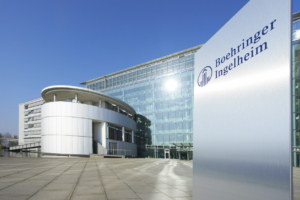CHMP greenlights first two CAR-T cell therapies in the EU
The EMA's CHMP recommended nine medicines including six orphan medicines for EU market approval on Friday.
The first two CAR-T cell therapies and six orphan medicines are among the medicines the Committee recommended for EU market approval at its June 2018 meeting. The first CAR T-cell therapies to be approved in blood cancers are Novartis’ Kymriah (tisagenlecleucel) and Kite Pharma EU BV’s Yescarta (axicabtagene ciloleucel). While Kymriah was recommended for the treatment of acute lymphoblastic leukaemia (ALL) and diffuse large B-cell lymphoma (DLBCL), the EMA greenlighted Yescarta as a therapy for diffuse large cell lymphoma (DLBCL) and primary mediastinal B-cell lymphoma (PMBCL). Kite Pharma is part of Gilead Sciences Inc. Both therapies target the CD19 antigen at the surface of B cells.
Both have EU orphan medicines status. They are also the first medicines supported through EMA’s PRIority MEdicines (PRIME) scheme to receive a positive opinion from the Committee. In 2016, Kymriah received PRIME status in ALL, while Yescarta caught PRIME status in DLBCL. Following a previous FDA decision, the EMA also approved a label extention of Roche’s IL-6 antagonist for RoActemra (tocilizumab) to treat CAR-T-cell-induced cytokine release syndrome (CRS), a serious side effect of CAR-T cell therapies that often occurs in responders.
Four other orphan medicines were recommended for approval by the Committee: Cablivi (caplacizumab) for the treatment of acquired thrombotic thrombocytopenic purpura originally developed by Ablynx now part of Sanofi; Mepsevii (vestronidase alfa), a recombinantly expressed beta-glucuronidase developed by Ultragenyx Germany GmbH, for the treatment of mucopolysaccharidosis type VII; Veyvondi (vonicog alfa), a recombinant van Willebrand factor produced by Shire’s subsidiary Baxalta Innovations GmbH, now part of Takeda, for the treatment of von Willebrand disease and Vyxeos (daunorubicin/cytarabine), a fixed-dose liposomal formulation developed by Jazz Pharmaceuticals Ireland for the treatment of acute myeloid leukaemia.
Grünenthal GmbH’s Duzallo (lesinurad / allopurinol) received a positive opinion for the treatment of hyperuricaemia in patients with gout. Duzallo is a fixed dose combination of two active substances, lesinurad and allopurinol. Lesinurad is a selective uric acid reabsorption inhibitor that inhibits uric acid transporter 1, and allopurinol reduces uric acid production by inhibition of xanthine oxidase.
The CHMP also granted a positive opinion for the selective progesterone receptor modulator Ulipristal Acetate Gedeon Richter (ulipristal acetate), for the pre-operative treatment of uterine fibroids. The application was an informed consent application, which makes use of data from the dossier Gedeon Richter’s previously authorised medicine Esmya, which was rejected from the market by the PRAC due to liver toxicity under protests of the company.
Furthermore, the Committee recommended EU market approval of Nerlynx (neratinib), an ERBB blocker developed by Puma Biotechnology Ltd, for the adjuvant treatment of adult patients with breast cancer, after re-examining its negative opinion for this medicine adopted in February 2018.
The application for an initial marketing authorisation for the acute lymphoblastic leukaemia med Graspa (L-asparaginase) was withdrawn by Erytech Pharma SA.



 Boehringer Ingelheim
Boehringer Ingelheim Olga Yastremska, New Africa, freepik
Olga Yastremska, New Africa, freepik